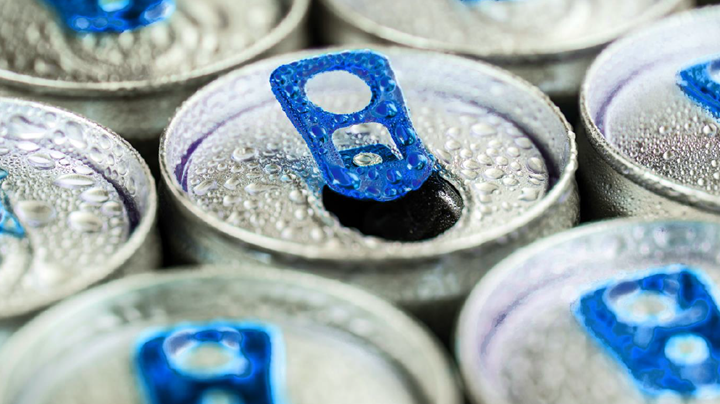Bisphenol-Free Coating for Beverage Can Ends
A BPA-NI internal coating for beverage can ends from AkzoNobel complies with FDA and EU regulations.

Photo Credit: AkzoNobel Packaging Coatings
Can makers and coil coaters ramping up their bisphenol-free transition have an alternative in Accelshield 700, a BPA-NI (bisphenol A non-intent) internal coating from AkzoNobel Packaging Coatings, for beverage can ends.
As a BPA-NI coating, Accelshield 700 does not use BPA or bisphenol-based epoxies as part of its manufacturing process. It complies with both Food and Drug Administration (FDA) and EU regulations.
The product is intended to help meet the surge in demand for alternative coatings which is expected after the European Food Safety Authority’s (EFSA) opinion on BPA restrictions in metal packaging of food and beverage products. Bisphenols are ubiquitous throughout the manufacturing industry, a situation with growing urgency for change following the EFSA’s opinion.
“With today’s technological advancements, bisphenols are no longer required to create safe coatings for state-of-the-art metal can packaging,” says Chris Bradford, industrial coatings marketing director, AkzoNobel Packaging Coatings. “BPA-NI coatings are a significant innovation, marking a critical turning point for the industry. Accelshield 700 will help can makers future-proof their selection.”
The coating has been designed for challenging foods and liquids — including those that are very acidic or require high-temperature sterilization processes, such as yogurt drinks, milk and coffee — in addition to soft drinks and beer. Said to easily integrate into customers’ existing manufacturing processes, Accelshield 700 also respects the need for can makers to mitigate disruption in production lines.
AkzoNobel says its approach to the BPA and bisphenol transition prioritizes consumer safety and sustainability with responsible material substitutions while simultaneously taking care to limit disruption to the value chain. The company is working closely with customers to help accelerate the adoption of bisphenol alternatives.
Related Content
-
Trivalent Chrome Overview
As the finishing industry begins to move away from the use of hexavalent chromium to trivalent chromium, what factors should finishers consider as they make new investments? Mark Schario, chief technology officer for Columbia Chemical offers a helpful overview of this complicated topic.
-
The Future of Hard Chrome: Pioneering Innovations for Sustainable Solutions
Although useful, chromic acid and other compounds that contain hexavalent chromium ions are highly toxic and carcinogenic. However, one company has developed an alternative for the hard chrome process that achieves thick, conformal coatings with wear and fatigue resistance comparable or superior to hexavalent chromium-based systems.
-
Bryan Leiker, MFACA, Discusses CARB Public Hearing Over Calif. Hex Chrome Ban
Bryan Leiker, executive director, Metal Finishing Association of California, offers a recap of a January 27, 2023, public hearing conducted by the California Air Resources Board prior to an impending ruling on a proposed ban of hexavalent chromium use for finishing operations in the state.














.jpg;maxWidth=300;quality=90)
